Cryptocurrency Wallets Explained
Why Crypto Wallets Matter
Cryptocurrency wallets are a big deal for anyone dabbling in digital coins. Think of them as fancy digital piggy banks or, if you prefer, high-tech vaults. They allow users to stash, send, and receive cryptocurrencies while interacting with blockchains. This handy little gadget stores those all-important private and public keys, which let folks access their digital goodies and create new addresses for transactions (Blockchain Council). You’ll want your ducks in a row when it comes to keeping your digital riches safe. Without a secure wallet, your cryptocurrency could do a vanishing act. So, what should you look for? Well, you want to know who holds the keys to the kingdom (a.k.a., private keys). Check out what kind of coins it supports, whether the user interface makes sense, its credibility, and whether customer support is ready to help when times get tough.
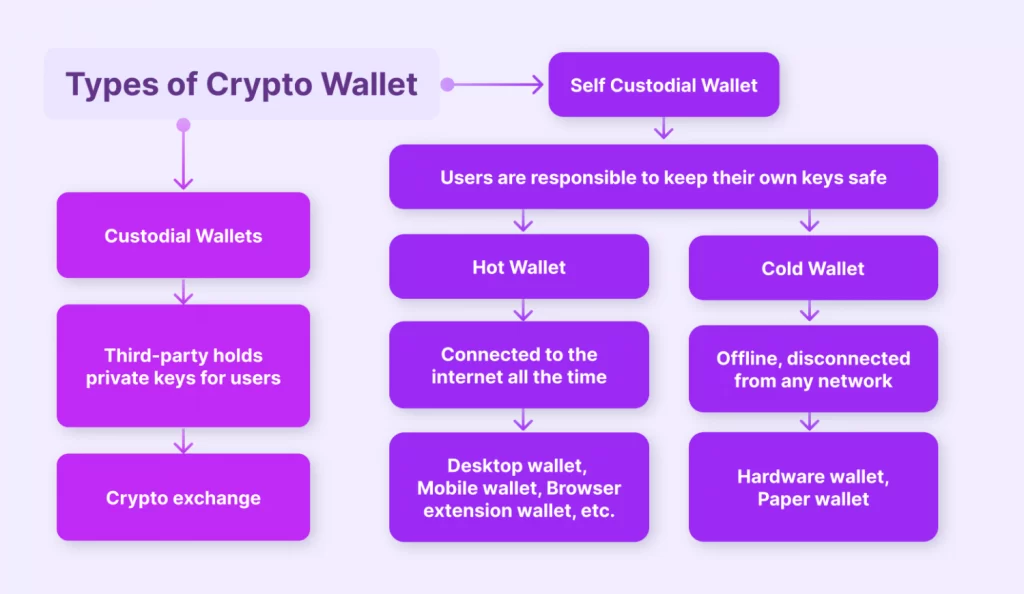
Types of Crypto Wallets
There’s a variety of cryptocurrency wallets out there, each with its ups and downs when it comes to safety and getting what you need quickly and easily. Here’s a cheat sheet for understanding cryptocurrency wallets out there:
| Wallet Type | Description | Pros | Cons |
|---|---|---|---|
| Mobile Wallets | Apps you install on your smartphone. | Handy and simple to get the hang of. | If you lose your phone, you might as well kiss your coins goodbye. |
| Web Wallets | Wallet in the browser so you can tap into it anywhere. | Use it on any device; no big learning curve. | Feels risky, like leaving your car unlocked in a sketchy neighborhood. |
| Desktop Wallets | Downloadable software for your home computer. | More secure compared to web wallets; totally in control. | You better watch out for malware, though. |
| Hardware Wallets | Physical gadgets for off-the-grid storage. | Ultra-secure; keeps those private keys offline and safe. | They don’t come cheap, and you’ve got to keep them close. |
| Paper Wallets | Printed QR codes holding your keys. | Immune to online creeps; rock-solid if you don’t spill your coffee on it. | Easy to lose or damage if you’re not careful. |
With this selection, you are free to choose cryptocurrency wallets that fit your lifestyle and strategy (Corporate Finance Institute). To level up your knowledge of crypto security, check out this article on crypto asset security.
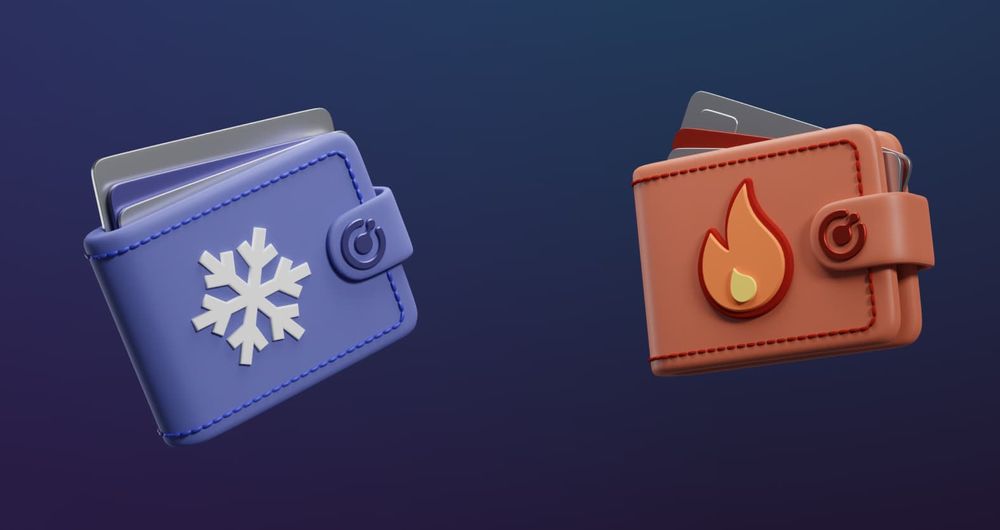
Hot Wallets vs Cold Wallets
If you’re starting your journey into learning about how cryptocurrency wallets work, then you know it’s vital to keep your digital assets secure. Understanding where to store your coins can be overwhelming, but it’s essential for your peace of mind. Hot and cold wallets serve different purposes for storage, so let’s briefly explore their differences—this knowledge will help you protect your investments.
Hot Wallets Overview
Think of hot wallets like that speedy roadster in your garage. They’re always ready to hit the road because they stay connected to the internet through devices like your phone, tablet, or computer. This constant connection makes it a breeze to slap some crypto here, there, and everywhere. Perfect if you’re in the habit of trading like a pro or just like to keep things moving quickly. Key Characteristics:
- Ready When You Are: Quick transactions at your fingertips—just like texting a friend.
- Roomy Storage: Fits anything from a solo Bitcoin to your entire crypto collection (NerdWallet).
- Simplicity Itself: If buying and selling is your groove, a hot wallet makes it easy-peasy.
| Type of Wallet | Connectivity | Ease of Access | Security Level | Typical Users |
|---|---|---|---|---|
| Hot Wallet | Online | High | Lower | Traders, crypto hustlers |
Cold Wallets Overview
Cold wallets are a bit like that safe in your basement—tough, secure, and unbreakable. They’re set offline, which means extra protection for that digital treasure. Whether it’s a sleek gadget locked in your drawer, a paper printout, or any method that keeps your privacy secret in check, it’s a great choice for long-term hodling and securing alot of crypto. Key Characteristics:
- Fort Knox Standard: With no internet lurking, hackers won’t be stealing your funds.
- Room for Loads: Think of them as built to store a mountain of crypto, possibly even more than their hot counterparts (NerdWallet).
- Not Just a Click Away: Usually, you’ll need a bit more effort to move coins around, maybe via USB or QR codes.
| Type of Wallet | Connectivity | Ease of Access | Security Level | Typical Users |
|---|---|---|---|---|
| Cold Wallet | Offline | Low | Higher | Long-haul investors, HODLmasters |
To summarize, hot cryptocurrency wallets are the choice for speedy action, while cold cryptocurrency wallets are all about keeping the crypto locked down. Decide which one suits your style, and you’ll be protecting your digital assets like a seasoned investor. 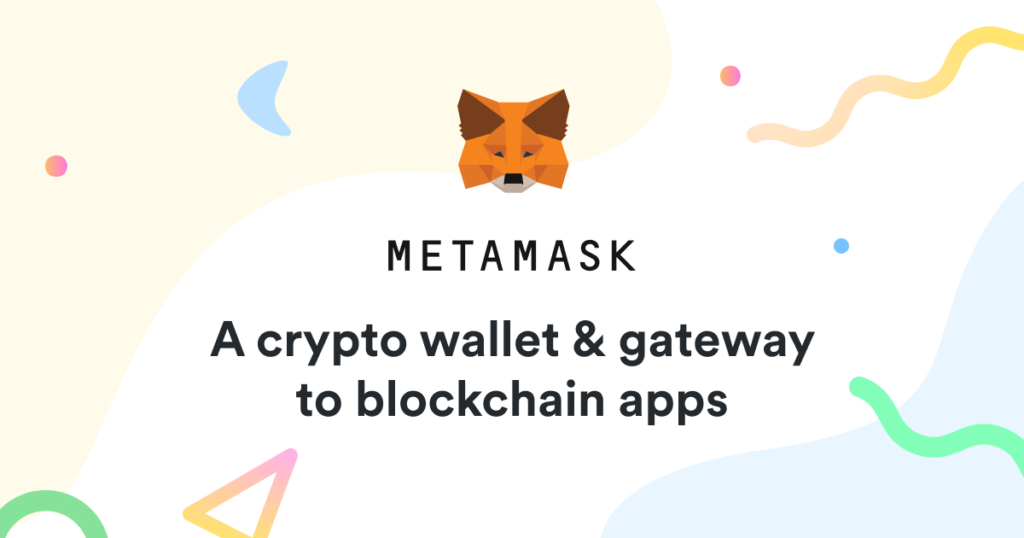
Hot Wallets Explained
Hot cryptocurrency wallets have become a favorite for many crypto fans—they’re super handy and you can get to them anywhere. But before you go all in, it’s good to know what you’re dealing with, the good and the bad, so you can stash your doge coins securely.
Features of Hot Wallets
These wallets are hooked up to the internet, so think of them as your online buddy for zipping coins around. Here’s what you need to know:
| Feature | What’s the Deal? |
|---|---|
| Online Access | You can use them from any online gadget—your phone, tablet, or laptop (Investopedia). |
| Easy Navigation | Super simple to use, which is perfect if you’re trading like it’s a part-time job (Blockchain Council). |
| Fast Transactions | Quick like lightning—makes buying and selling a breeze! |
| Free as a Bird | Most don’t cost a dime and might even give you perks like getting a cut of the interest (NerdWallet). |
| All-In-One Compatibility | Handles different coins at once, which is neat for mixing up your investments. |
Pros and Cons of Hot Wallets
Using a hot wallet is kind of like living on the edge—super convenient, but not without its risks. Hot wallets are the go-to for traders who need to hustle with their crypto. But if you’re thinking of packing things away for winter (or longer), maybe look into cold wallets. Knowing what could go wrong with hot wallets is smart, especially if you’re worried about keeping your crypto safe out there in the wild. 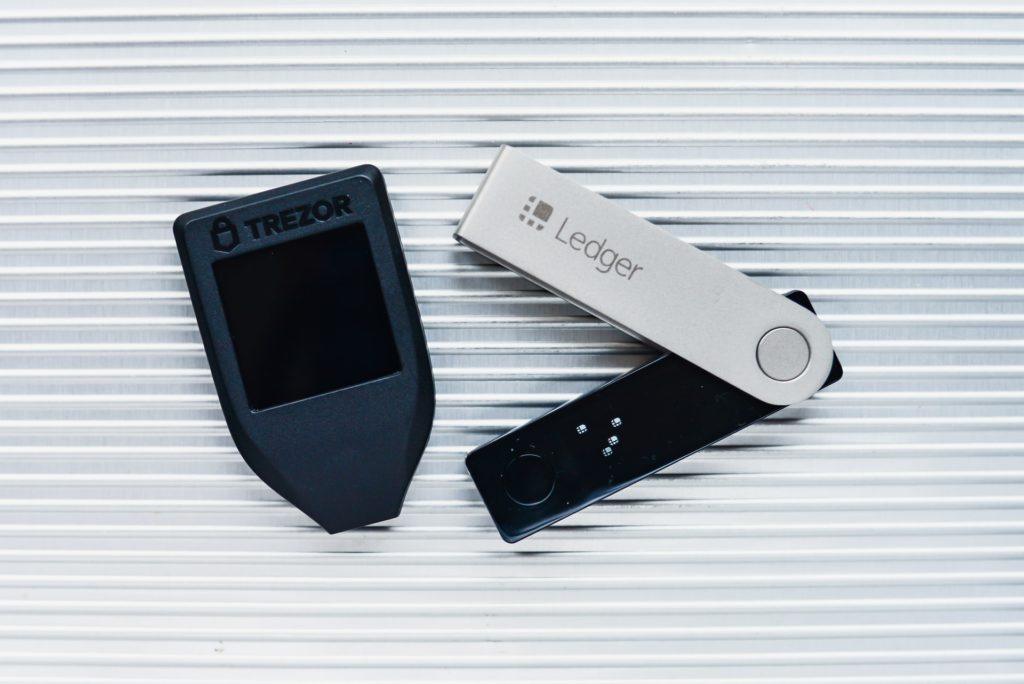
Cold Wallets Explained
Cold wallets are your Bitcoin’s secret hideout—an impenetrable fortress keeping your private keys safe from hackers. Let’s explore why these wallets could be the ultimate ally in protecting your digital wealth!
Features of Cold Wallets
Cold wallets come with a set of traits that set them apart as top contenders in protecting your crypto stash. Here’s the scoop on what they offer:
- Stayin’ Offline: These babies store your private keys with zero internet for hackers to poke around in (Investopedia).
- Plenty of Flavors: You have options! Hardware like USB’s or nifty paper printouts are both in the mix. Hardware wallets are gadgets made just for keeping crypto safe.
- Price Tag: Expect to shell out $50 to $200—depending on how fancy you get with your device (Investopedia).
- You’re the Boss: Cold wallets give you the reins—all your keys in your hands, goodbye third parties!
- Backup and Replay: Most cold wallets offer slick ways to back up, making it easier to nab your wallet back with phrases or downloads when disaster strikes.
| Cold Wallet Type | Key Features | Average Cost |
|---|---|---|
| Hardware Wallet (e.g., Ledger Nano S, Trezor) | Safety in storage, simple backup, loads of coin support | $70 – $150 |
| Paper Wallet | Off-the-grid storage, crazy cheap | Free |
Hardware Wallet Security
Benefits of Hardware Wallets
Hardware Cryptocurrency wallets act as secure vaults for your digital assets, keeping your cryptocurrencies offline and safe from online threats. They utilize advanced technology to lock away your private keys, ensuring maximum protection (GeeksforGeeks). Essential for anyone wanting to safeguard their digital wealth from prying eyes.
| Feature | Description |
|---|---|
| Offline Storage | Keeps private keys out of reach from hackers |
| Tamper-Proof | Built with defenses against sneaky intrusions |
| High Security | Far superior to software wallets for protection |
| Cost Range | Prices from $50 to $200, a steal for peace of mind |
Compared to old-school paper wallets, hardware wallets are the champions of security. They dodge the pitfalls, like being unable to send small sums. Plus, they make transactions a breeze while keeping security tight. Software wallets might be easy, but they’re not as tough against the bad guys when holding lots of crypto. 
Best Practices for Hardware Wallets
For extra safety with these wallets, it’s smart to follow some gold-standard practices. Here’s how to keep your stash under lock and key:
- Buy from the Best: Snag a hardware wallet from known big shots or legit sellers. This cuts down on receiving junk or fake items.
- Use a Strong PIN: Lock that wallet with a strong PIN. Treat it like a password to your safe.
- Backup Your Seed Phrases: When setting up, jot down your backup seed phrase and guard it like it’s your last plate of food. For more details, check our piece on crypto wallet seed phrases.
- Firmware Check: Peek for updates from the wallet makers and get those installed to level up your security game.
- Skip Public Wi-Fi: When dealing with your crypto, stick to private and secure internet. Avoid open cafes where internet bugs lurk.
- Unplug When Done: After transactions, disconnect the wallet from your computer or phone to keep risks low.
Following these tips will turn your cryptocurrency wallets into fortresses, making your digital assets safer. If you’re curious for more tips, dive into resources like multi-signature wallets for extra shields of protection.
Choosing the Right Wallet
Picking the perfect crypto wallet isn’t just about swiping right on the first one you see. It’s all about keeping your ETH safe and sound. If you’re considering investing your hard-earned money in the world of cryptocurrency, let’s break it down for you. Understanding the potential and risks involved is crucial for making informed decisions.
Factors to Consider
Here’s a checklist for finding a wallet that’s got your back. Make sure it’s all in and you’re not shooting blanks when it comes to your digital stash.
| Thing to Check | What’s the Deal? |
|---|---|
| Who’s Got the Keys? | Make sure you’re the boss of your private keys. Lose them? You might as well kiss your coins goodbye. |
| Security | Go for one with serious security tricks‒ like two-factor, because one is not enough for safety. |
| Coins on Offer | Does it support all the funny money you want to hold? It’s no use having a wallet that won’t carry your load. |
| User-friendliness | Can Grandma figure it out? The easier, the better for cruising through your transactions. |
| Credibility | Check what other folks say about it. You wouldn’t get a well with water nobody else drinks from. |
| Customer Service | Kind of like asking if your favorite pizza joint delivers; check if there’s help when you get in a bind. |
| Costs and Charges | Keep an eye on those sneaky fees that might nibble at your stash. |
| Extras | Does it offer features like recovery options or multiple sign-ins to keep your assets super secure? |
Recommendations for Different Investors
Check out this cheat sheet for picking cryptocurrency wallets based on what kind of money moves you’re making.
| Who You Are | What You Need | Why It Works for You |
|---|---|---|
| Just Browsing | Software Wallet | Easy peasy for small bits and occasional swoops through the crypto jungle. |
| Serious Player | Hardware Wallet | Like a personal bodyguard for your big bucks and offers peace of mind when playing the game. |
| Got Patience | Cold Wallet (e.g., Hardware) | Perfect for stashing away your treasure and keeping it out of reach ’til you’re good and ready. |
| Newbie Alert | Mobile Wallet | Friendly enough for greenhorns to get their feet wet, starting small ($30 should do the trick). |
| Tech Whiz | Multi-currency Wallet | It handles all sorts of crypto with bells and whistles for those who speak JavaScript as a second language (it is one of the best multi-currency crypto wallets). |
We know finding a wallet that suits your style and keeps your coins secure is essential. By following these tips, you can protect your crypto effectively. For more security insights, check out our guide on crypto asset security. Your peace of mind is important! 
Mobile Wallets and Beyond
Overview of Mobile Wallets
Mobile wallets can feel like magic, turning our smartphones into personal bank tellers. They make it easy to spend and save with QR codes, whether we’re buying a latte or sharing a dinner bill. However, we should be aware of vulnerabilities, as malware and cyber threats can pose risks. That’s why it’s crucial to prioritize strong encryption for security. Coinomi and Mycelium are excellent mobile wallet options, known for their user-friendliness and additional features for trading cryptocurrency. Just remember, with their convenience comes the responsibility to ensure our financial information is safe.
| Mobile Wallet Name | Perks | Possible Pitfalls |
|---|---|---|
| Coinomi | Handles multiple currencies and has exchange features | Phone losses, malware |
| Mycelium | Offers extra privacy, connects with hardware wallets | Prone to malware, phishing |
Emerging Trends in Crypto Wallets
As technology advances and wallets evolve to suit users’ preferences, the world of cryptocurrency wallets is continually changing. Here’s what’s happening:
- Top-Notch Security: As online scammers get sneakier, wallet creators are amping up security. Think multi-signature approvals, 2FA, and biometric locks to keep hackers at bay (multi-signature wallets).
- DeFi and Web3 Fusion: With DeFi platforms booming, cryptocurrency wallets now blend naturally with these new-age services. Get right into trading without leaving your wallet.
- No More ‘Expert-Only’ Interfaces: The crypto world is for everyone now. Wallets are getting a makeover to feel like your favorite app — easy, breezy, and not a headache trap.
- Guarding Your Keys: More folks are shifting to non-custodial wallets, holding tight to their private keys and sidestepping the old-school custody chains. Security in your hands feels a lot better.
- Everywhere you go: Wallets that work on desktops, phones, or even hardware toasters (if that existed) are in vogue. Keeping track of your crypto while hopping between gadgets has never been smoother.
As cryptocurrency wallets rapidly evolve, staying informed about trends is essential for smarter and safer investing. As the digital landscape expands, being knowledgeable will help you securely keep and grow your assets.
Frequently Asked Questions
What are cryptocurrency wallets?
Cryptocurrency wallets are digital tools that allow you to store, send, and receive cryptocurrencies securely. They can be software-based, like mobile apps or desktop programs, or hardware devices that provide a more secure way to manage your digital assets.
How do I choose the best cryptocurrency wallet for my needs?
To choose the best cryptocurrency wallet, consider factors like security features, ease of use, supported cryptocurrencies, and whether you prefer a hot wallet (online) or cold wallet (offline). It’s essential to assess your investment strategy and choose a wallet that aligns with it.
Are cryptocurrency wallets safe to use?
Yes, cryptocurrency wallets can be safe if you take the right precautions. Use wallets with strong security features like two-factor authentication and encryption. Avoid sharing your private keys and keep backups of your wallet to protect against loss.
Can I use more than one cryptocurrency wallet?
Absolutely! Many investors choose to use multiple cryptocurrency wallets to diversify their holdings and enhance security. Using a combination of hot wallets for everyday transactions and cold wallets for long-term storage can be a smart strategy.


![[cryptocurrency wallets]](https://cryptohashira.com/wp-content/uploads/2024/10/1730320405708x158684408553168900-feature-750x375.png)
![[secure bitcoin wallets]](https://cryptohashira.com/wp-content/uploads/2024/11/1730320405725x325769434323760060-feature-120x86.png)




![[secure bitcoin wallets]](https://cryptohashira.com/wp-content/uploads/2024/11/1730320405725x325769434323760060-feature-350x250.png)






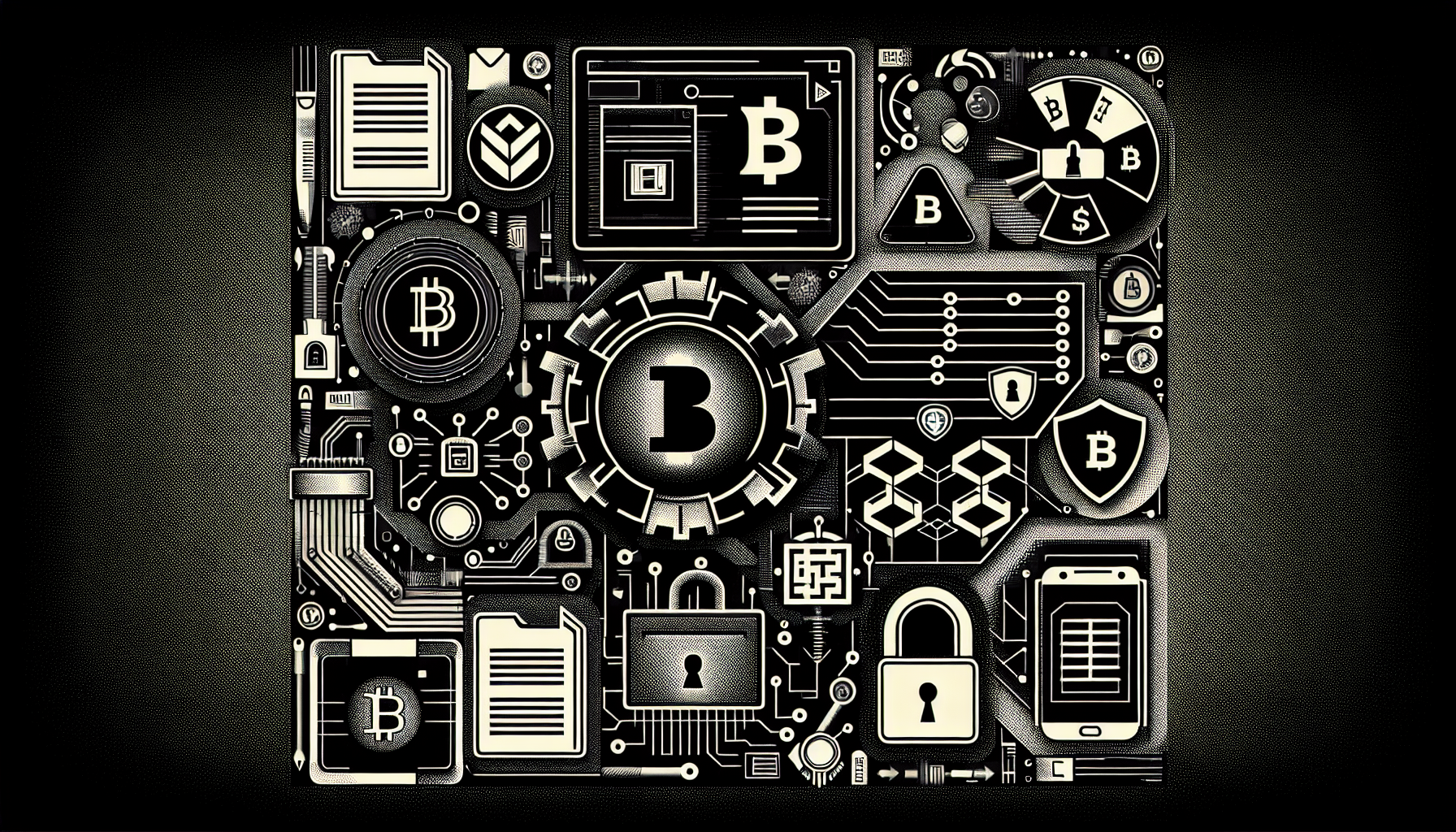





![[crypto asset security]](https://cryptohashira.com/wp-content/uploads/2024/11/1730320405711x482955841305053900-feature-120x86.webp)
